תוצוצינ

2018
BOSTON’S JEWISH COMMUNITY DAY SCHOOL / SPARKS / Spring
Nitzotzot
COVER IMAGE: Gan Nitzan (Kindergarten) pose on “The Buddy Bench,” which was engineered and artistically decorated by the Gan Nitzaners as part of their Learning Adventure (p. 6).
“The bench is where you can sit if you’re feeling blue, or if you’re not sure who to play with during recess,” said one Gan Nitzaner. All of the students are responsible to check and see if anyone is on the bench. “If you see someone, you have to go over to them, talk with them, and see what you would like to play together.”
CONTENTS
3 From the Head of School
4 Parents in the News
5 Meet Josh Mocle
6 Learning Adventures / Jared Matas
8 Family in Focus / Naomi Gurt Lind
9 Class Notes
10 Matters of Taste 2018
12 Interfaith Student Programming
14 Teacher Rounds / Chavah Goldman
@jcdsboston
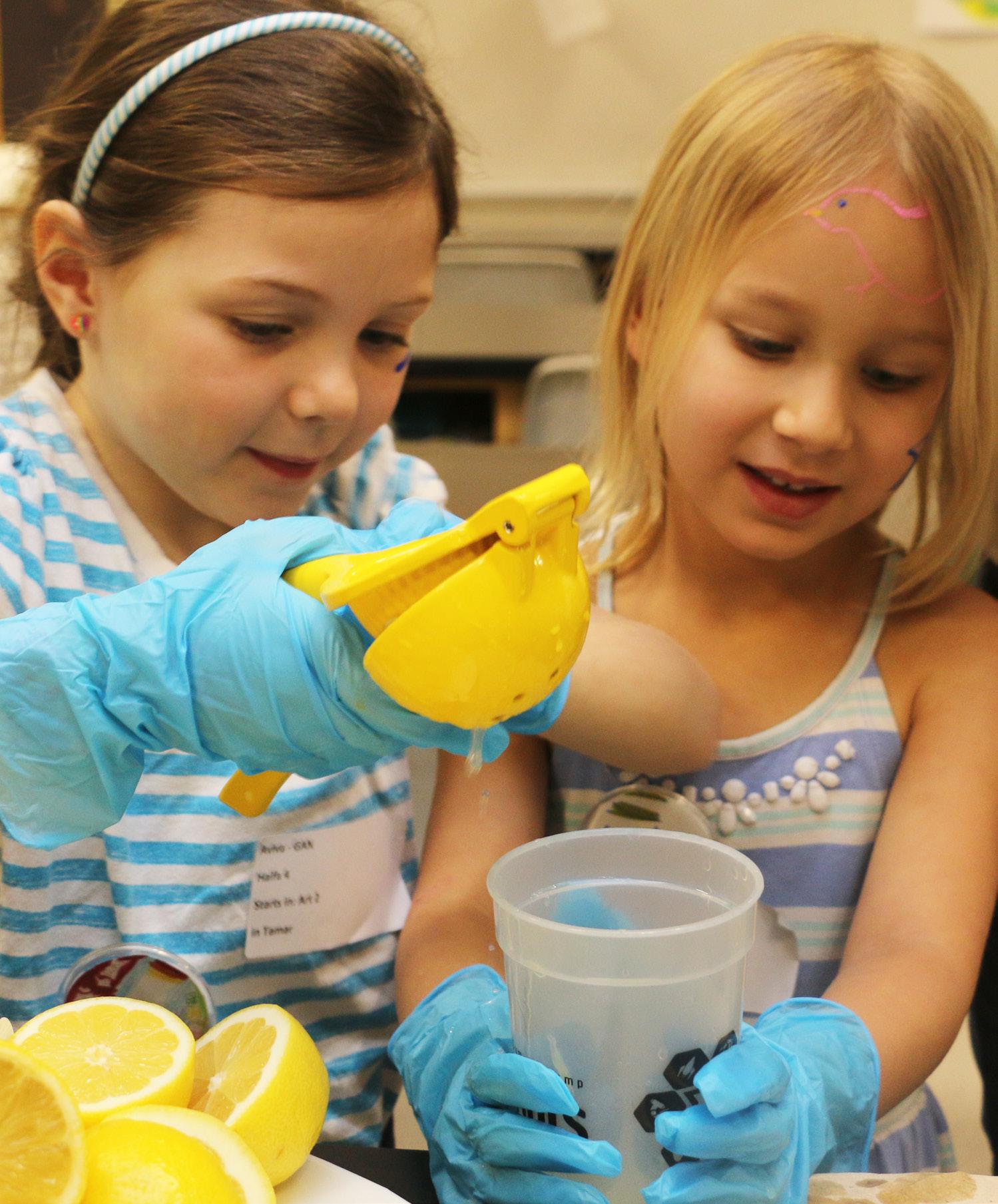

NITZOTZOT / SPRING 2018 2

FROM THE HEAD OF SCHOOL
רפסה
BOARD OF TRUSTEES
Officers
Elizabeth Waksman, President
Fiona Epstein, Clerk
Nathan Hayman, Treasurer
Members
Yaniv Bejerano
Sara Riedner Brown
Claudia Davidoff
Rachel Fish
Nicole Gann
Nancy Ganz
Sophie Gildesgame
Alex Gurevich
Sari Korman
Devra Lasden
Sharon Levin
Abe Menzin
Adele Newman
Howie Rodenstein
Carey Schwartz
Shiri Segev
Adam Shyevitch
Arnee R. Winshall, Founding Chair
Head of School
Dr. Susie Tanchel
Founding Board
Naomi Bar-Yam
Yaneer Bar-Yam
Rabbi Susan Harris
Mark Kramer
Vardit Ringvald
Arnee R. Winshall
Walter A. Winshall
In the tumultuous times in which we live, we are more likely to hear stories of isolation than inclusion, of alienation than acceptance, and of greed than gratitude. In stark contrast stands our shared Jewish tradition and values. Today, the intentional nurturing of community might be viewed by some as countercultural—but it is, in fact, the lifeblood of the Jewish people. The Torah teaches that we are all connected and our individual actions have far reaching implications for the collective.
This very same belief animates our community at JCDS. It is our sacred responsibility to raise our children in a school that teaches Hebrew, STEM, Tanakh, literacy, and just as importantly, cultivates our students’ empathy, resilience, and growth mindset. As our name suggests, we are first and foremost a community—and we pride ourselves on being one characterized by acceptance, warmth, kindness, and joy. At JCDS, we teach our children that we are all in this together.
The K-8 years are the most formative for character development. We take that weighty responsibility seriously, and it informs everything we do here.
As you will read in this issue of Nitzotzot, our students are actively working to make their communities stronger in myriad ways. Children are looking beyond themselves to notice others through programs such as our interfaith partnership with the German International School of Boston. They are taking the initiative to expand their community, to be inclusive, and to solve realworld problems through Learning Adventures. These are essential building blocks for future engaged citizens who are eager and able to affect change.
JCDS is an antidote to the negativity and disconnection that currently plague our society. We give our students the tools, opportunities, and guidance to search for truth and to grow into their highest selves. With this kind of exceptional education, our children are ready to make a difference in the world as they shape communities characterized by inclusivity, generosity of spirit, and genuine kindness.
B’shalom,
 Dr. Susie Tanchel Head of School
Dr. Susie Tanchel Head of School

Dr. Susie Tanchel learns from students during the 5th Grade milestone, Kabbalat haMishnah, where students share their knowledge and interpretations of Pirkei Avot, Ethics of the Fathers.
NITZOTZOT / SPRING 2018 3
תיב שארמ

PARENTS IN THE NEWS
תושדחב םירוה
In print and online, current and alumni JCDS parents are recognized for their professional achievements in local politics, Jewish leadership, cyber security, and STEAM education. JCDS is proud to count so many leaders of the Greater Boston community among its parent body. Thank you to all of our parents for making our community so vibrant inside and outside of school.
We want to celebrate the incredible work you do in your professional, personal, and communal life.
Please send your updates to news@jcdsboston.org.
Rabbi Sharon Cohen Anisfeld, current Dean of the Hebrew College Rabbinical School, has been chosen to serve as the next President of Hebrew College. She is the first woman elected to lead Hebrew College in the school’s history. For the past 14 years, Rabbi Anisfeld, parent of Daniel ‘09 and Tali ‘12, has brought her strong leadership and teaching skills and compassionate presence to Hebrew College.
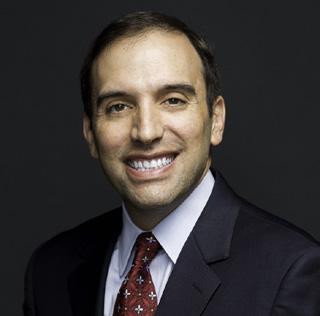

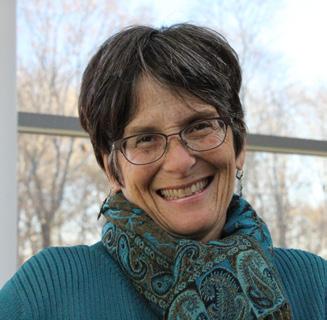
Lior Div, parent of Lia ‘25 and Guy ‘27, was interviewed on WBUR and New England Cable News on the topic of Israeli cyber security firms setting up shop in Boston and how Israel, Boston, and Silicon Valley are the top 3 cyber security spots.

Rabbi Marc Baker was approved and voted in by the Combined Jewish Philanthropies’ (CJP) Board of Directors to be the next CJP President, beginning this summer. Rabbi Baker, parent of Lishi ‘17, Meital ‘19, Maor ‘21, and Alanna ‘23, is a North Shore native who has served as Head of School at Gann Academy in Waltham for the past 11 years. He has been a scholar-in-residence of the Cynthia and Leon Shulman Acharai Leadership Program at CJP since 2012.
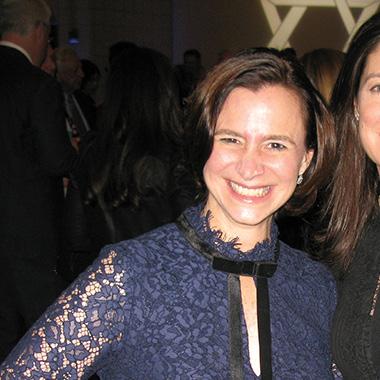
Winnie Sandler Grinspoon, parent of Reid ‘08, Sloane ‘09, and Lee, was honored by the JCC of Greater Boston at its annual gala, JCC@333, with the Norman B. Leventhal Community Leadership Award. Grinspoon, President of the Harold Grinspoon Foundation, is also receiving the 2018 Reisman Professional Excellence Award from the Hornstein Jewish Professional Leadership Program at Brandeis University.

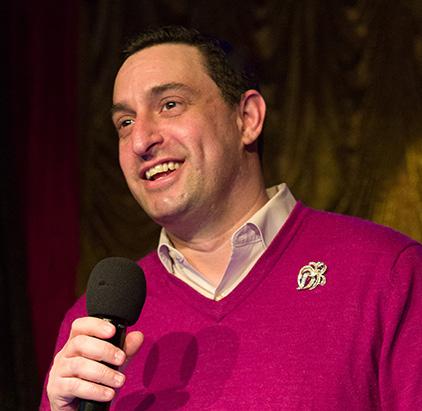
Seth Battis, parent of Gersh ‘26, and chairman of the newly created Computing Design & Fabrication Department at Gann Academy, was quoted in The Boston Globe in December: “I’ve inherited a whole lot of kids who are gung-ho on making things happen. Our courses are over-enrolled for next year and we expect to field four robotics teams for the FIRST Tech Challenge. We also have an ever-shifting team of 8-12 students who have been totally fantastic about helping us (re)build our physical fabrication and design facilities on campus.”
James Cohen has been selected as a Charles and Lynn Schusterman Family Foundation Fellow. Cohen, parent of Reggie and Jason ‘19, will join a cohort of 26 talented professionals committed to strengthening their leadership and exploring how to address pressing issues facing the Jewish community and Israel.
Belle Halpern, parent of Aviva ‘13 and Lev ‘16, organized a rally against racism in February. The rally, which was called “A (flash) Mob for Mo: Newton Supports Mo Khalaj and Walnut Market,” began at the Hyde Community Center and was attended by many in the community, including Mayor Ruthanne Fuller, to show support of a local store owner harassed for his ethnicity.
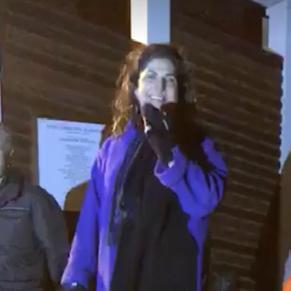
Rabbi Dan Judson, core faculty member and Associate Dean of Placement and Professional Development of the Hebrew College Rabbinical School, has been chosen to serve as its next Dean.
Rabbi Judson, parent of Naftali ‘15, Maayan ‘18, and Revaya ‘21, has been on the faculty for the past 10 years, and previously served as a congregational rabbi.

Ellen and Michael Krause-Grosman, parents of Gabriel ‘19 and Rachel ‘22, were featured in a Wall Street Journal article on parenting, children, and screen usage in January.
The Krause-Grosman family was featured in The Wall Street Journal in an article regarding children and screentime.
(Credit: The Wall Street Journal/wjs.com)
NITZOTZOT / SPRING 2018 4
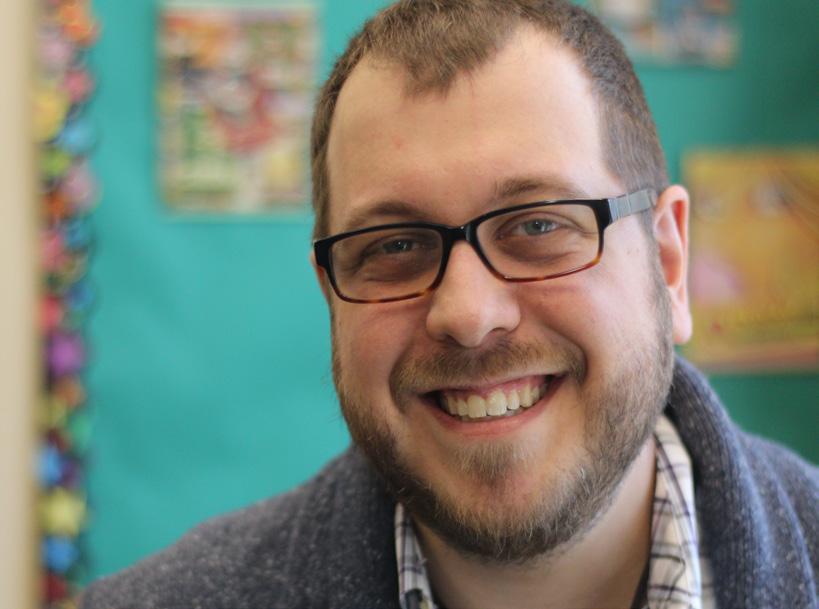
What inspired you to become an educator?
It was definitely the teachers I had in high school and throughout my undergraduate and graduate career. Coming from a fairly large public elementary school in New Hampshire and going to a smaller Jewish high school where people actually know your name and have an interest in you was a gamechanger for me—I found people whom I could actually model my life after. Since I was 17 years old, I had my eye on teaching because I wanted to pay forward the good that I got from my teachers to students that I’ve been entrusted with over the years.
So why do you teach Humanities?
At my core, I consider myself a storyteller. My background is in history and filmmaking, and I don’t see those two subjects as disconnected. Imagining the past as a novel about the human race, with lots of different chapters that connect, transforms history into an epic tale. Even when I was young, I always had the ability to see the “big picture.” I never saw history as just dates on a page or pictures in a book—I saw the ripple effect of events and the threads that connected the past to the present. When you engage with the events of the past as stories, you are able to see yourself in them. I think seeing yourself in your educa-
MEET JOSH MOCLE, MIDDLE SCHOOL HUMANITIES TEACHER
tion is incredibly important. It’s really easy to get lost in facts and dates and forget that history is actually made up of individuals who effected change. I try to go microscopic when teaching history—I speak about the people and their experiences in an event, and I give students opportunities to engage with those people and with one another.
What is your favorite part of teaching at JCDS?
There is a baseline understanding at JCDS that we are going to explore and experiment during class, even in humanities. JCDS cultivates students to have a strong sense of curiosity, and not in an arbitrary way, but in a deep, honest way. The search for knowledge and understanding is something that these students value. Their willingness to ask questions serves them well in the study of history. The level of passion, inquiry, and curiosity that they put forward has inspired me and pushed me to go deeper in my own thinking, more than at any other place I have taught.
Do you have any strange or unique interests?
I am a somewhat classically trained filmmaker. My love of filmmaking as a form of expression came about very early in my education. My teachers were often really supportive of me
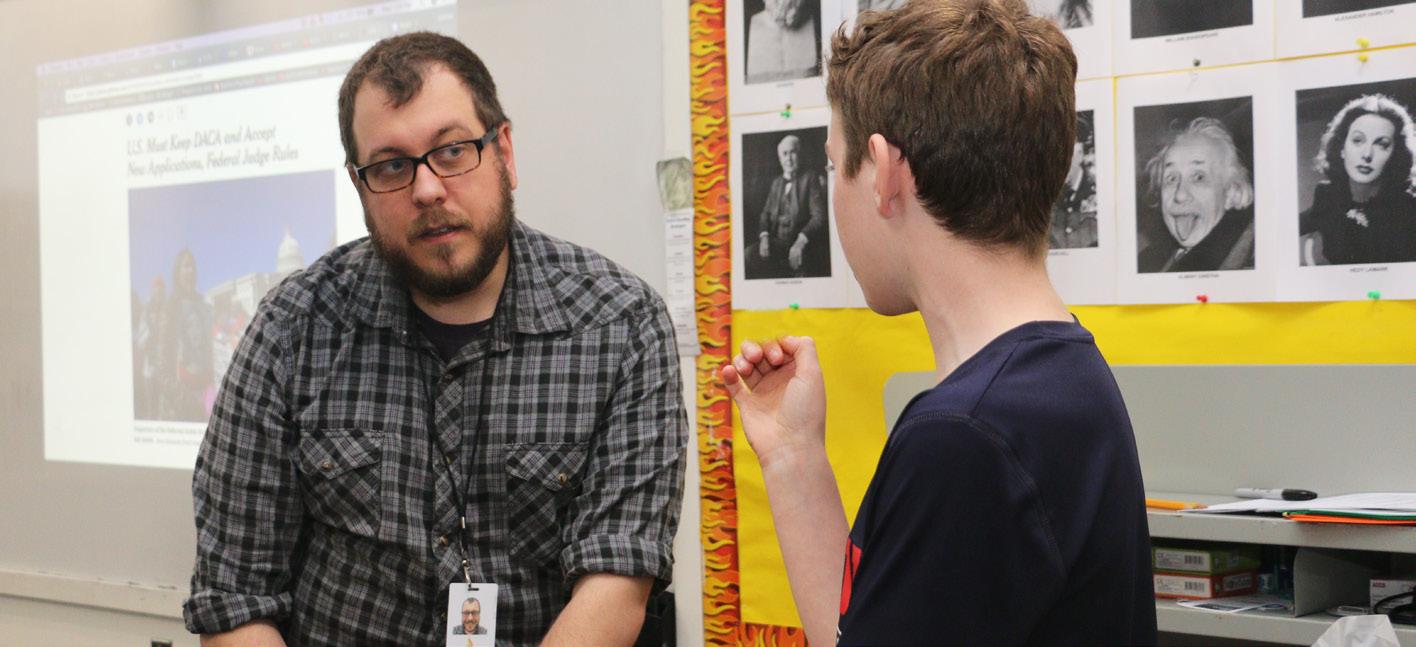
expressing myself in that way, so many of my papers turned into screenplays and the teachers were just fine with that. I only purchase music on vinyl and most of it involves loud guitars. To no one’s surprise, I am quite a big comic book fan. My favorite will always be The X-Men because as a Canadian, Jewish kid growing up in southern New Hampshire, I was pretty excluded for most of my adolescence. I really connected with the “outsiders with fantastic abilities” idea.
Can you explain the “parallel projects” you have been implementing in your classes?
All of my assignments this year have had at least two options: one more classical and one more innovative. What I try to do is create parallel assignment options for students who learn, create, talk, or exist differently. For example, during our Holocaust unit, some students approached me and said the best way they could memorialize and demonstrate their understanding of the unit would be by creating an art installation. I think that these students will ultimately have gotten more out of the entire unit because they were able to personalize their approach to their final product. Any opportunity for students to bring their own self-expression and perspective to the projects they create forges deeper connections with the material, a stronger rapport between the student and me, and leaves the student with more pride in their work and understanding of the subject.
תא וריכה
׳שוג
NITZOTZOT / SPRING 2018 5
STEM-FOCUSED
LEARNING ADVENTURES
הדימל תואקתפרה
 By Jared Matas, Director of STEM Innovation
By Jared Matas, Director of STEM Innovation
Whatdo playground architecture, reptile care, and musical prayer have in common? They are all examples of the deeper learning that took place this year during JCDS Learning Adventures, week-long interdisciplinary units developed around real-world challenges. We are deeply appreciative of CJP and the Gelfand Family Foundation for their support of the Learning Adventures.
During their assigned week, each grade paused typical classes to deeply immerse itself in an applied learning experience. While the students had diverse and developmentally appropriate experiences—from Kindergarten students working with an artist-in-residence to create a playground “Buddy Bench” (see cover photo) to 8th graders recreating Jewish culture destroyed in the Holocaust—each Learning Adventure was connected by a commitment to helping students become problem-solvers and grapple with relevant, hands-on issues facing people today.
Design Thinking provided a highly useful framework for students during Learning Adventures. At an age-appropriate level, all students went through a rigorous process of identifying a key problem, collecting data through research or interviews, prototyping possible solutions, improving based on feedback, and then sharing their solutions with an authentic audience. Within this framework, students directed their own line of inquiry, and sought out resources from the community in order to advance their learning.
For example, in addressing the challenge of how the school could reduce its ecological impact, 6th graders met with representatives from a trash collection company, a recycling plant, and a composting facility in order to learn what happens to waste products. They

explored Jewish texts that articulate the value of ba’al tashchit, or preservation of the earth, and discussed their obligation to take care of our planet. At the end of their Adventure Week, they presented practical, implementable, and measurable solutions for reducing our waste at JCDS to a panel of teachers, administrators, and community experts. We have adopted their recommendations as a community and have noticed profound changes in our waste management.
Our 3rd grade students were tasked with improving the experience of indoor recess at JCDS. They researched their problem by interviewing various stakeholders, including students in all grades and teachers on recess duty. They analyzed the data they collected from this process and developed problem statements that defined their task:
• Some students need a way to play physical games with their friends during recess because it helps them reboot their minds and bodies.
• Some students need help figuring out what to do during recess because the time can be overwhelming and unstructured.
• Some students need a way to do quiet activities during indoor recess, which is very loud.
• Teachers on duty need a way to make sure all the students are safe and having fun.
The students took their task of matching solutions with the stakeholders’ needs seriously. The same process was evident when our 1st grade students researched the needs of bearded dragons and then developed a class brit, or covenant, to demonstrate that they were prepared to become responsible classroom pet caretakers.
ABOVE: 2nd graders use tools to build musical instruments to enhance their t’fillot
RIGHT: 4th graders test the temperature in their model play structure using heat lamps and probes.
BELOW: 4th graders present their playground models, connected to TinkerCad software, to their peers and a panel of experts.
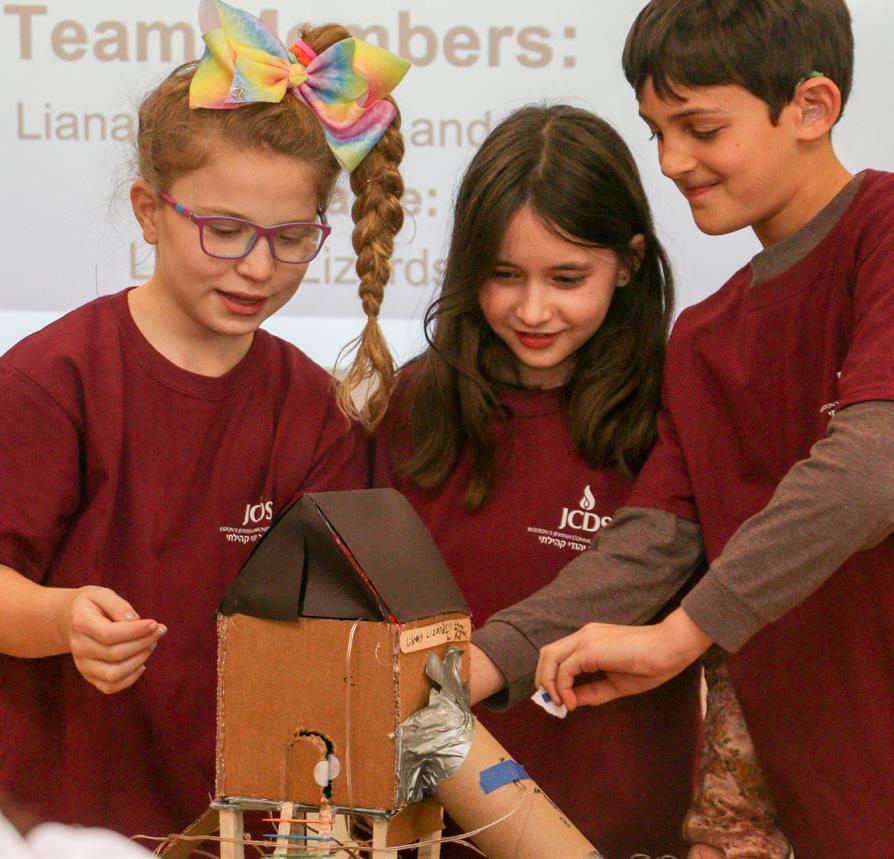
NITZOTZOT / SPRING 2018 6
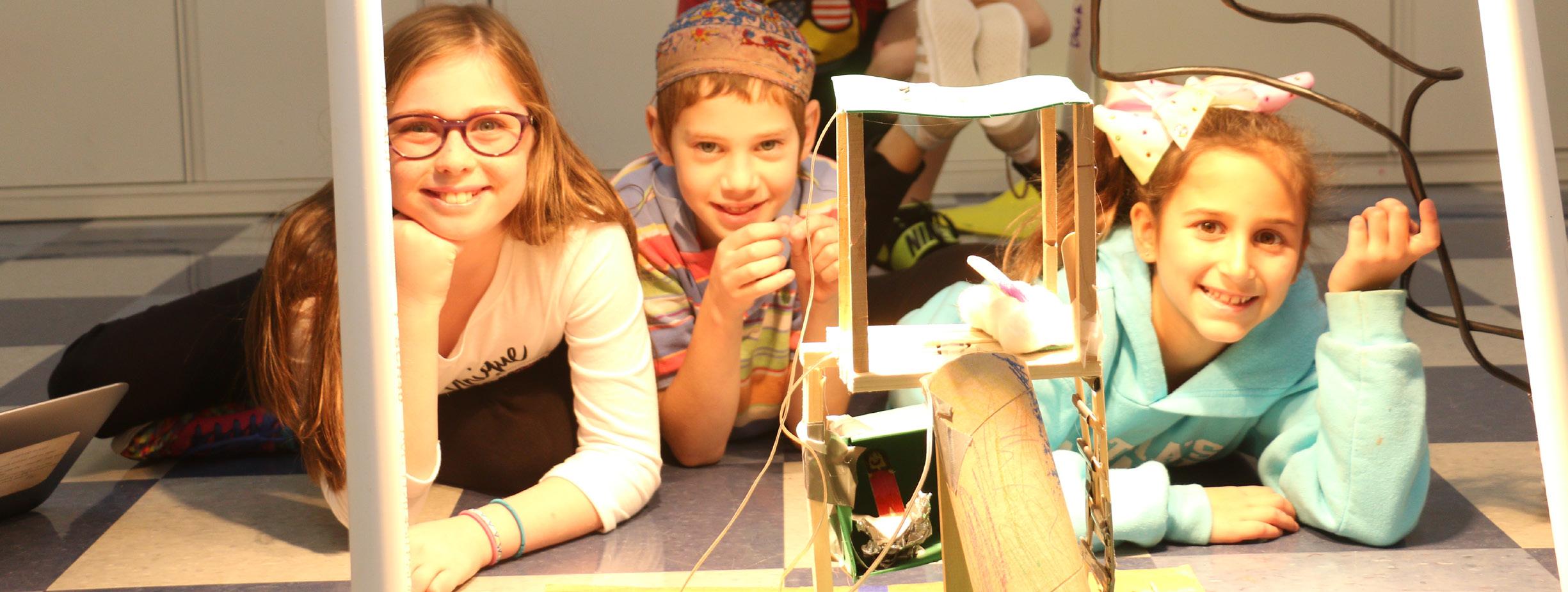
By connecting learning to real-world issues, students engaged in a wide variety of tasks and assumed multiple roles. For example, in designing, creating, building and testing playground models, 4th graders became computer programmers, engineers, graphic designers, artists and problemsolvers. Second graders cut copper pipes, sawed cardboard and crafted musical instruments that enriched t’fillot in their classroom all year long.
Finally, each grade was visited by an expert or two who helped students design and visualize their solutions. As part of the 8th graders’ exploration, and with a generous grant from Facing History and Ourselves, JCDS hosted the talented musician Joey Weisenberg, who spent the week singing and playing songs, both original creations and tunes resurrected from pre-Holocaust Eastern Europe. Joey’s visit dovetailed with the 8th graders’ Learning Adventure in which the driving question was: What is the difference between remembering and resurrecting pre-war Jewish life? Students explored many facets of pre-war Jewish life, including the people, recipes, newspapers, language, architecture, stories and clothing. Inspired by Joey’s work reviving melodies, they developed interactive projects based on their own interests and passions. Other visiting experts included “Parts and Crafts,” “Change is Simple,” artist Tova Speter, Rav Claudia Kreiman, programmer Jason Innes, architect Tamar Warburg, and even JCDS 4th grader Ari Skolnick-Einhorn, who was an “expert” on bearded dragons during the 1st grade adventure.
Learning Adventures give our students the opportunity to authentically put into practice many of our Habits of Heart and Mind, including curiosity, empathy, and a desire to solve problems. As the first year of this initiative comes to a close, we are amazed by the work our students have produced, and we look forward to continue engaging in authentic learning opportunities with them all year long.
2017-2018 LEARNING ADVENTURES
Gan Nitzan: Designing a Buddy Bench
1st Grade: Adopting a Class Pet
2nd Grade: Creating T’fillah Instruments
3rd Grade: Expanding Indoor Recess Options
4th Grade: Developing Playground Models
5th Grade: Reimagining Shabbat for Seniors
6th Grade: Reducing School Waste
7th Grade: Mikveh Engineering
8th Grade: Reviving Pre-Holocaust Jewish Life

Lower School students learn new songs with Joey Weisenberg while also practicing some JCDS favorites.
SPRING 2018 7
רוקרזה רואב
Think Globally, School Locally:
THE BORENSTEIN FAMILY
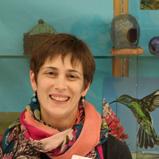 By Naomi Gurt Lind, parent of Akiva ‘18 and Gideon ‘22
By Naomi Gurt Lind, parent of Akiva ‘18 and Gideon ‘22
For nearly a decade, JCDS has been like a second home to Marci and Joram Borenstein and their three children, ever since their eldest, Eitan ‘18, started in Gan Nitzan. Over those nine eventful years, the Borensteins have come to regard aspects of the JCDS experience as integral to their Jewish life, from academics to pluralism to the chesed support they received during a recent family illness.
In many ways, the family’s trajectory toward JCDS began long before then. While Joram is a native of Providence, and Marci grew up in Seattle, the couple met in Israel where both were pursuing graduate degrees at Hebrew University. The two came from different backgrounds in their religious upbringing, with Marci being active in the Reform movement and Joram in the Conservative movement, and a pluralistic approach was a priority for them. Says Marci: “We have family members who span the Jewish community (Orthodox, intermarried, non-Jewish, Reform, etc.) and we wanted our kids to be Jewishly literate and have a strong Jewish education, while also learning deep respect and acceptance for all kinds of belief and observance within their own family and in the Jewish community at large.”
Daily life at JCDS was also a strong draw for the couple. In addition to the strong academ-
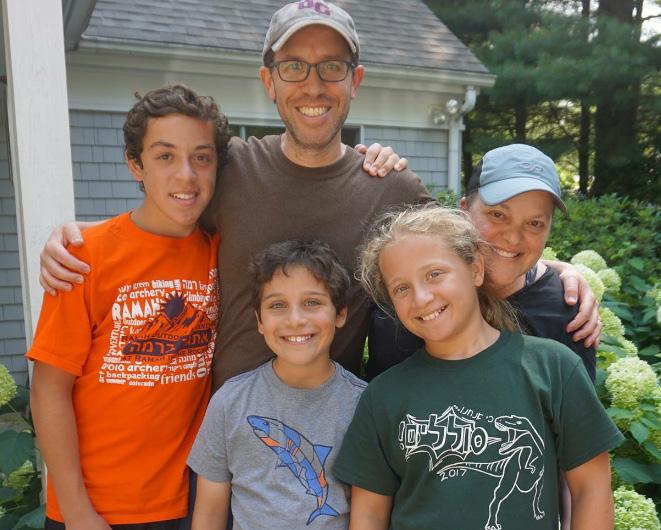
ics and innovative approach to Hebrew language learning, the Borensteins were drawn to the way character education goes deep at JCDS. Seeing the practice of “recess debrief” on one of their early visits to the school, they were taken with the emphasis on menschlechkeit. “Not only do JCDS kids graduate with strong academic skills, they are kind, nice kids with a love of learning,” says Marci.
The experience of watching each of their three children, Eitan ‘18, Rina ‘20, and Adin ‘22, “thrive academically, socially and emotionally, knowing they are truly loved and seen for who they are,” inspires the Borensteins’ involve-ment in the school, seen in both their volun-teerism and philanthropy.
Furthermore, Joram and Marci cite JCDS as one of the key Jewish institutions in Greater Boston if not the entire Northeast. Between the strong academics and the warm, supportive community, JCDS has had a deep and positive impact on the lives of all five Borensteins. Joram adds: “The global Jewish community will benefit from an increasingly pluralistic view of things and we believe this is the right approach to how to live a Jewish life in the 21st century.”
Devoted members of the Newton Center Minyan, the Borenstein family also enjoys sports, games, hiking Acadia or Glacier National Park (“our happy places”), cooking, hosting friends, or “sitting in front of the fire with a pile of board games.”
“ “
We wanted our kids to be Jewishly literate and have a strong Jewish education, while also learning deep respect and acceptance for all kinds of belief and observance.
FAMILY IN FOCUS
From left to right: Eitan, Joram, Adin, Rina, and Marci Borenstein
— Marci Borenstein NITZOTZOT / SPRING 2018 8
In college?
Working?
Volunteering?
Traveling?
Involved in your community?
Getting married?
Having a baby?
Let us know what’s happening in your life by emailing your updates to news@ jcdsboston.org.

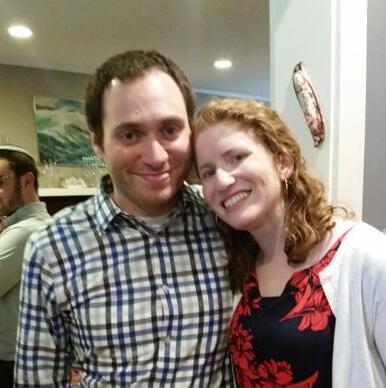
Jonathan Brown
With great happiness, alumni parents Larry Brown and Barbara Lapidas-Brown are thrilled to announce the engagement of their son, Jonathan Brown, to Shira Schwartzberg. Mazal Tov to the extended Schwartzberg and Brown families!
Class of 2016
Alyona Gomberg
Alyona Gomberg ‘16 was a winner in the 2018 Boston Globe Scholastic Art and Writing Competition. Her ceramics and glass piece, entitled “Bull and Castagnettes,” was awarded a Gold Key. Her second ceramics and glass piece entitled, “An Autoportrait in Marionette Form,” was awarded a Silver Key.
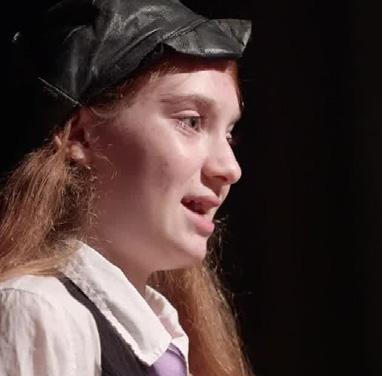
Anna Kamens

CLASS NOTES
JCDS ירגוב
Congratulations to Anna Kamens ‘16 for being featured on WGBH’s Stories From the Stage television program, currently airing five nights a week on PBS stations all over the country. The episode featuring Anna (“School Days: Student Tales”) premiered on WGBH’s World Channel on January 29 and can be seen online at PBS.org.
Amalia Hochman

Amalia Hochman ‘16 was interviewed on WBUR about the student walkout to push for stricter gun laws across the country. An organizer of student activism at Somerville High School, Amalia was one of about 50 teens who organized the event. “There have been issues with gun violence here,” said 16-year-old Amalia. “There was definitely a feeling after the Parkland shooting that it’s going to be here and there is a lot of fear.”
Class of 2015
Maya Shyevitch
Maya Shyevitch ‘15 was featured on the cover of The Jewish Advocate in an article about the March 15th walkout at Newton North High School to protest in support of stronger gun control laws following the Parkland shooting.
Class of 2014
Ilai and Einat Gavish


Ilai ‘14 and Einat Gavish are the Newton North recipients of the Blumer Book Award. They were selected by their principals, counselors, and teachers to receive the Massachusetts Association of School Superintendents’ Award for Academic Excellence. This award is given to high school students who have distinguished themselves in the pursuit of excellence during their high school careers and have attained a very high level of academic achievement and intellectual rigor and character, in addition to having contributed significantly to the school and community. This is the first time in the award’s 20-year history that it was presented to twins.

Class of 2013
Twelve of the ninteen graduates from the Class of 2013 are doing a gap year in Israel this year. We are so proud of all of our graduates who are volunteering their time in Israel and abroad, as well as those beginning their undergraduate studies.
NITZOTZOT / SPRING 2018 9
LEFT: Alumni family Ifat Rubin Bejerano, Danielle Bejerano ‘17 and Yaniv Bejerano enjoying this year’s Matters of Taste.
ENGAGING WITH OTHERS: INTERFAITH STUDENT PROGRAMMING
תותד-ןיב תוינכות
Just a few weeks ago, our 7th and 8th grade students came together with students from the German International School of Boston (GISB) to explore their shared Holocaust history as part of an ongoing interfaith program. This meaningful and unique experience was not an isolated program between the two groups. “From the beginning of this partnership, we at JCDS and GISB knew we wanted to do a Holocaust project, but we wanted to wait until the students knew each other better,” said Andrea Silton, Middle School teacher and coordinator of the interfaith program. “Part of the process of creating this interfaith group was that the adults had to create a relationship in order to develop the courage to talk about the Holocaust, and only then could we model for the students how to engage with each other around our shared past.”
The interfaith partnership with GISB began as a comparative religion course that Andrea offered as a t’fillah elective almost two years ago. “I wanted to teach a comparative religion course because I felt it was the next step in our mission of pluralism,” said Andrea. “If we are training these students to be the next leaders of the world, they need to learn how to make room for all voices at the table. The next step is to encounter those who are more dissimilar from them.”

After much excitement and anticipation, Middle School students from GISB first met with JCDS middle schoolers in May 2017. The group connected with the goal of learning about each other by discovering common interests. Students began by sharing what they were looking forward to during these meetings and learning about each other’s religions and cultures. During lunch, students participated in a guided debrief of what they had discovered, including brainstorming slogans for the group, such as “Stronger Together: Build Bridges, Not Walls.”
That fall, JCDS students visited GISB, where they explored the theme of identity by making posters about themselves and played games to explore visible and hidden identities. Another exciting aspect of the day was that the students taught each other how to say a few sentences in German and Hebrew. Students were looking for similarities and differences that impact their identity. “A big similarity between us is that we all strive to see ourselves as part of the larger world community—an international identity — whether it’s Jewish, German, Israeli, American, etc. We strive to make the whole world a better place from the inside,” said Sam G., a 7th grader.
ABOVE, BELOW, AND RIGHT: GISB and JCDS students participate in various activities that help them get to know one another.

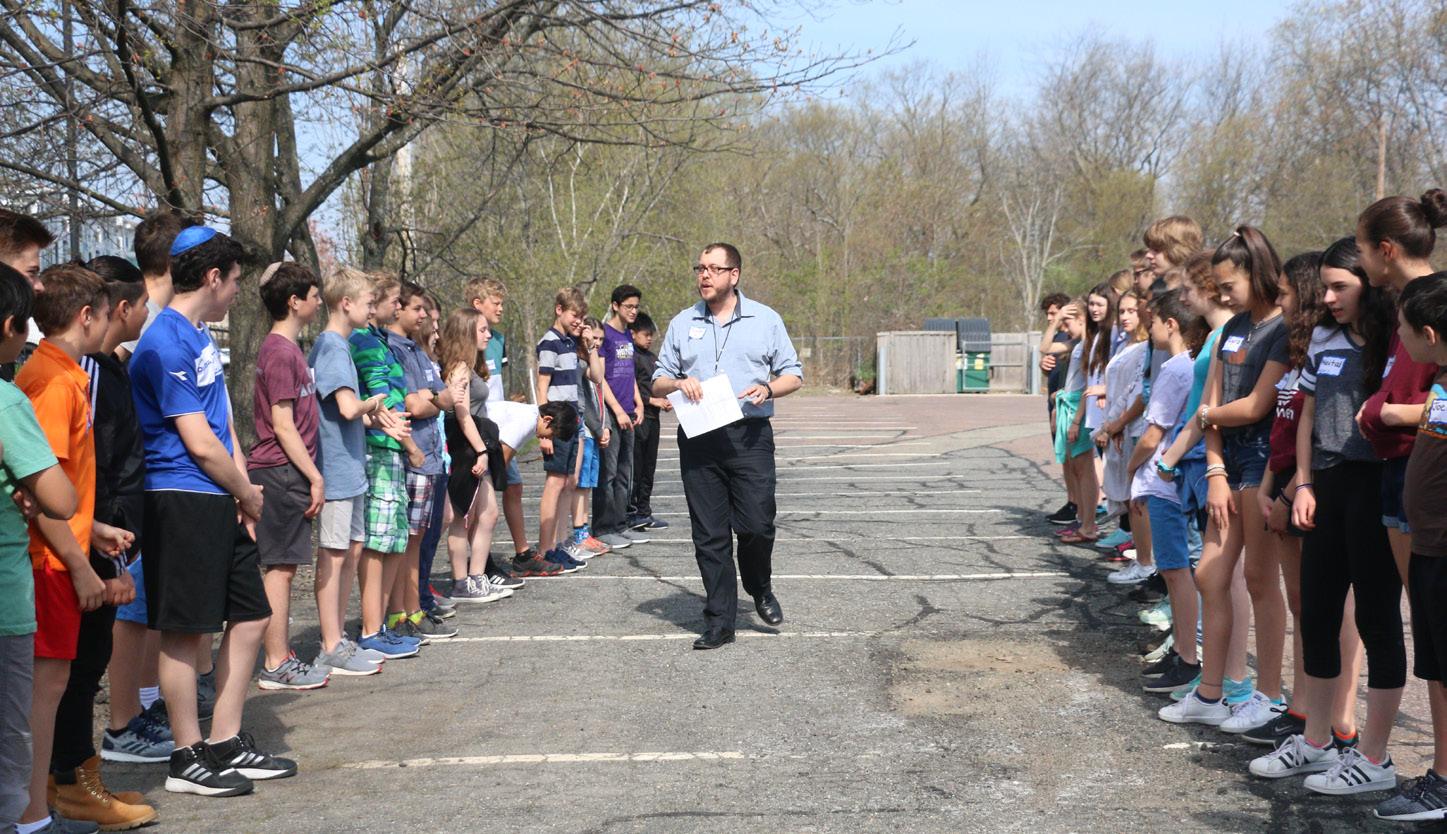
NITZOTZOT / SPRING 2018 10

Students at GISB and JCDS have spent almost two years getting to know one another. They have explored their hobbies, interests, languages, and holidays. Eighty years ago these students might have been enemies. During their last meeting on May 3rd, they came together to confront their past, and to work together to make the world a better place in the future. During this program, they explore a shared history of the Holocaust, even though they were on opposite sides of that history.
The day began by having the students think about their families’ pasts and discuss what they had learned with their teachers before they came to this program. Then, the students listened to two speakers—one with Nazi family members and one with Holocaust survivor members—and then discussed how they could see themselves in each of the speakers.
“I was very impressed by the way in which students of both schools were interacting with each other, how they were thinking and talking about the stories of the speakers and how the students were linking the stories to issues we are dealing with today,” said Andreas Weber, Middle School teacher at GISB and coordinator of the interfaith program.
Students ended the day by thinking about problems in our world today and exploring ways that they can work together to try to solve or improve these problems.
“This journey has allowed us to get to know people of other religions in a way that we might not have otherwise,” said Andrea. “We have put a face to the other and they became our friends. We learned that there is so much more that connects our communities than divides us.”

“ “
A big similarity between us is that we all strive to see ourselves as part of the larger world community.... We strive to make the whole world a better place from the inside.
— Sam, 7th Grade

NITZOTZOT / SPRING 2018 11
RIGHT: Dr. Jochen Schnack, Head of School at GISB, Dr. Susie Tanchel, Head of School at JCDS, and Helmut Landes, Deputy Consul General, Consulate General of the Federal Republic of Germany, celebrate the two schools’ partnership.
MATTERS OF TASTE 2018
םעט לש ןינע


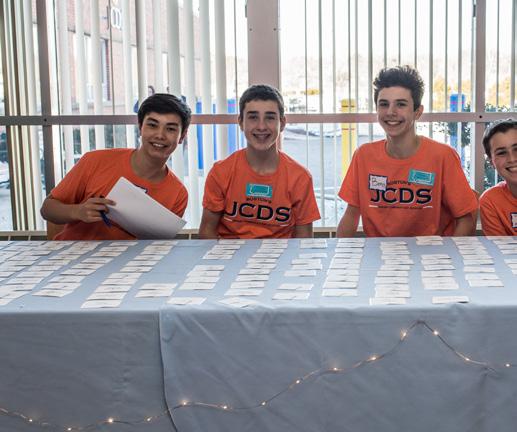
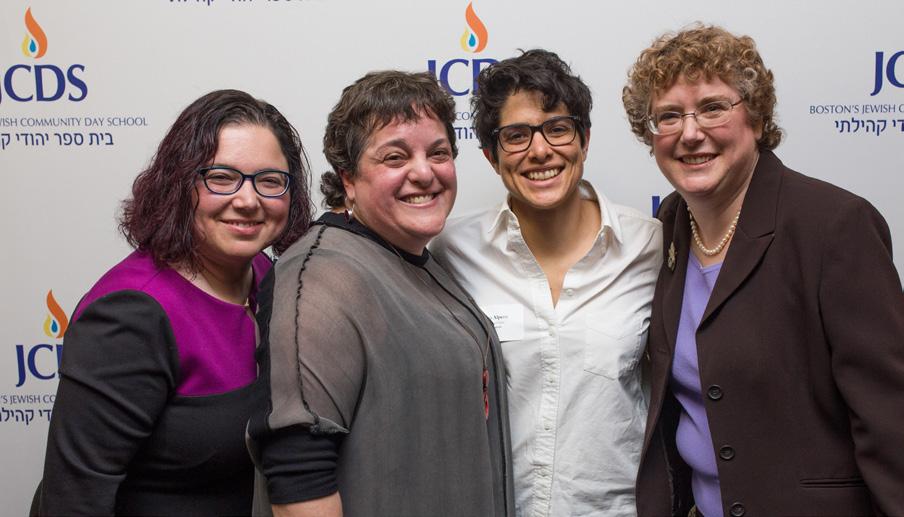
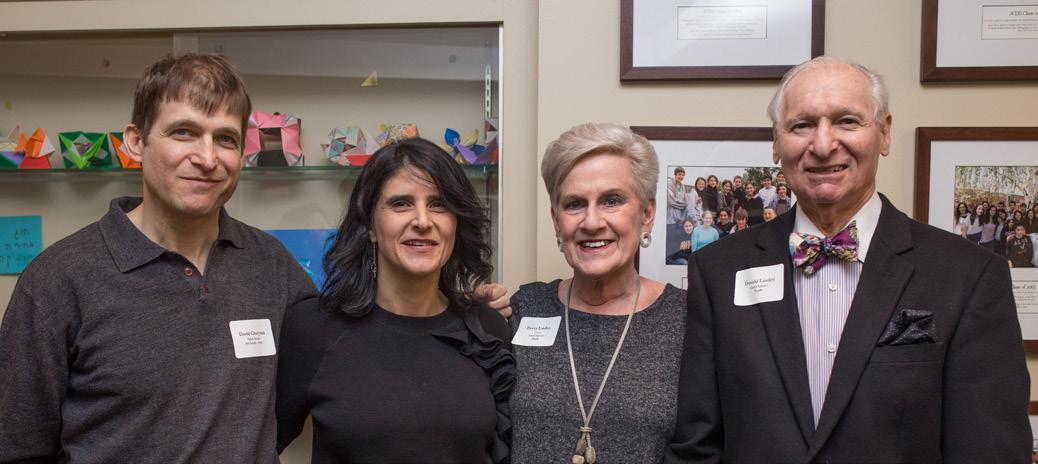



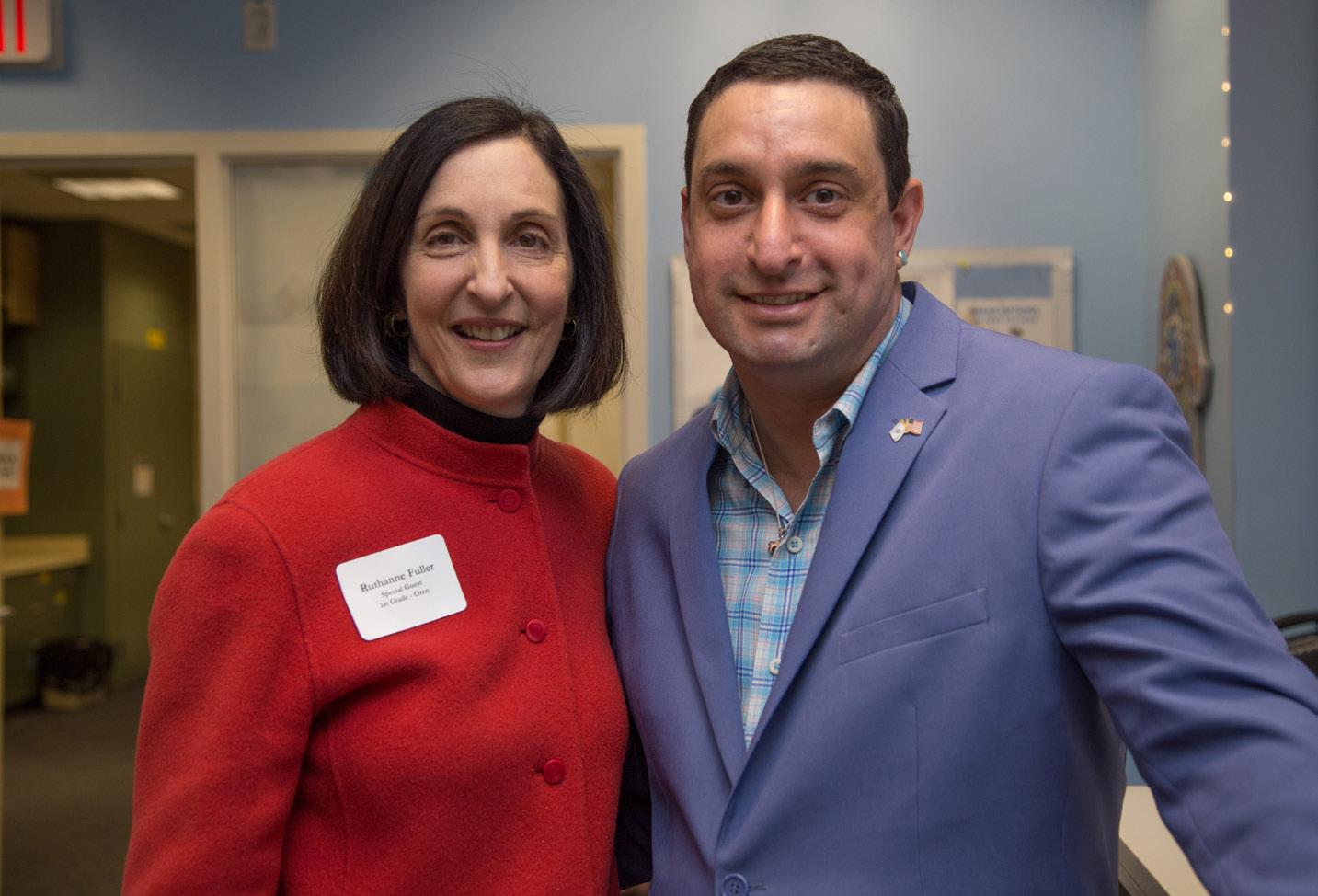






12 3 2 1 5 7 12 13 16 14 15 17 6 8 9 4
On March 18, over 250 friends of JCDS gathered together for our annual benefit event, Matters of Taste. Classrooms were transformed into elegant, welcoming dining spaces, the halls and galleries were alive with student work, and guests experienced the magic of the school. Our ten speaker-leaders from the greater Boston area intrigued guests with topics ranging from the Putin-Trump relationship to pickle making. On behalf of the Board, staff, and students at JCDS, we want to express our deepest appreciation to the many people whose presence and support helped to make this event a success. We hope to see you on March 31, 2019 for Matters of Taste 2019!


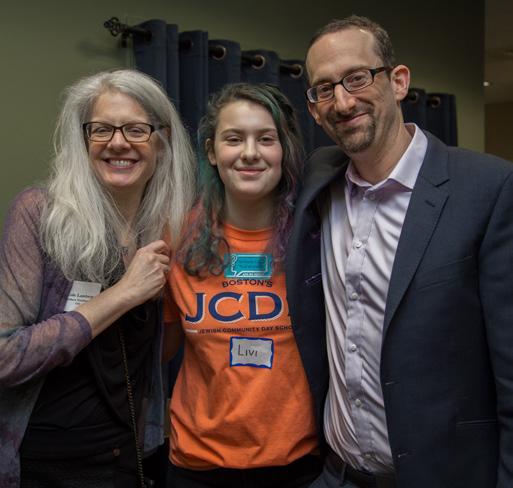

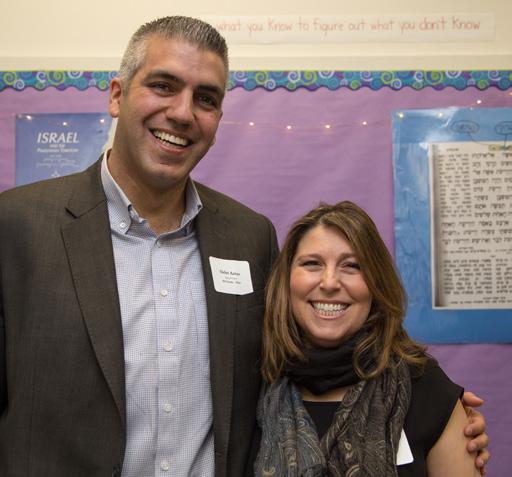

1 Gary Alpert, Gateways Educational Specialist, Jared Matas, JCDS Director of STEM Innovation, Allison Cook, Senior Educator of the JCDS Engaging Pluralism Project and parent, and David Hirsh, parent
2 Elia Steinberg ‘18, AZ Krebs ‘18, and Benjy Steinberg ‘18
3 Tom Schwarz, former trustee, and Michael Gilman, MOT Special Guest
4 David Sharff and Carey Schwartz, trustee, CoChairs, Matters of Taste 2018, Susan Cohen, and Matthew Teitelbaum, MOT Special Guest
5 Oren Kaunfer, JCDS Madrich Ruchani and parent
6 Julia Khodor Beloborodov, parent, Marci Borenstein, parent, and Liz Alpern, MOT Special Guest
7 David Charytan, alumni parent, Shoshana Jacobs, former trustee and alumni parent, Devra Lasden, trustee, and Don Lasden

8 Newton Mayor Ruthanne Fuller, MOT Special Guest, and James Cohen, parent
9 Robert S. Kaplan, MOT Special Guest
10 Niki Lamberg, former trustee and parent, Livia Shyevitch ‘18, and Adam Shyevitch, trustee and parent
11 Oshri Azran, MOT Special Guest, and Shiri Segev, trustee and parent
12 Eitan Hersh, MOT Special Guest, and Fiona Epstein, trustee
13 Bayla Kamens ‘14, MOT Alumna Speaker
14 Liz Waksman, President, Board of Trustees, and parent, Carey Schwartz, David Sharff, and Dr. Susie Tanchel, Head of School and parent
15 Carol Saivetz, MOT Special Guest, and Devra Lasden
16 Marvin and Margaret Menzin, grandparents
17 Sarah Winshall, MOT Special Guest and alumna, Dr. Susie Tanchel, and Arnee R. Winshall, Founding Chair and alumni parent
18 Parents Nathan Hayman, trustee, Dafna Hayman, Jenny Gomeringer, Parent Campaign Co-Chair, and Tim Gomeringer
19 Daniel Shapiro, (center) MOT Special Guest
NITZOTZOT / SPRING 2018 13
(Captions from left to right)
18
19
10
11
PROFESSIONAL DEVELOPMENT: TEACHER ROUNDS
הארוהב תיעוצקמ תוחתפתה
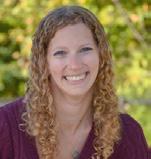
 By Chavah Goldman, 2nd Grade General Studies Teacher
By Chavah Goldman, 2nd Grade General Studies Teacher
Teaching can be complex and often isolating work. As we teach in our classroom cocoons, we are often plagued with internal questions: How can I meet the needs of all my students? Why is a student not verbally participating? How do I teach the students to ask better questions? How do I encourage my students to take learning risks? Yes, we have professional development sessions and meetings with support specialists, but having teacher colleagues come into your classroom to observe, gather data and then discuss your questions is immensely powerful. Enter Teacher Rounds. As Vivian Troen and Katherine Boles wrote in their book The Power of Teacher Rounds: “What distinguishes a Round from other professional development is that it occurs in the actual context of teaching and learning, it draws on and encourages investigation and reflection on teachers’ and learners’ experience, it provides a shared experience as a basis for conversation, and it brings to bear interactively the various perspectives and expertise of different participants in the reflection process.”
At JCDS, we are privileged to participate in Teacher Rounds. Once a month, in both the Lower School and Middle School, a teacher hosts a group of colleagues in his or her classroom and asks the observers to focus on a specific problem of practice. After the observation, the group gets together and uses a specific protocol to debrief. During this time, each participant shares observations, wondering questions, and learnings, and commits to trying something new in his or her teaching practice based on the Round. This is followed by a meeting where teachers share evidence of the work they have done related to that commitment. The best part of Teacher Rounds is that the observations and questions that are raised at the debriefs lead
“
Teacher rounds gives us a tangible way to show our students that teachers are learners too, and that we never stop striving to learn and improve.
to us reflecting deeply on our own teaching, and the commitments hold us accountable for acting on those reflections. Consequently, Teacher Rounds at JCDS have had a lasting impact on many teachers’ practice. Some teachers have explored how to incorporate more student choice into their lessons, while others have implemented new ways of differentiating to reach more of the students. One teacher changed the language that she uses to respond to students in order to increase Growth Mindset, and others worked together to experiment with different types of student grouping to maximize student progress and deep thinking.
— Chavah Goldman
“
There are many other benefits to Teacher Rounds. Simply being in each other’s classrooms is inspiring and we often get new ideas to adapt for our own. Additionally, as both Judaic and General Studies teachers participate in Rounds, we have been able to get a better sense of where and how we can integrate content, language, and common teaching strategies. One of the other benefits from Teacher Rounds is that it gives us a tangible way to show our students that teachers are learners too, and that we never stop striving to learn and improve.
I have adapted and improved my teaching in countless ways because of Teacher Rounds. I am so grateful that this internal professional development has become a consistent and accepted piece of the JCDS teaching culture.

NITZOTZOT / SPRING 2018 14
ABOVE AND RIGHT: Teachers take notes as they observe their colleagues at work. Afterwards, they all sit together and discuss how to improve their own practice.

The entire school joins together every Yom Ha’atzmaut, Israel Independence Day to celebrate in a variety of ways, including traditional Israeli Folk Dance.
NITZOTZOT / SPRING 2018 15

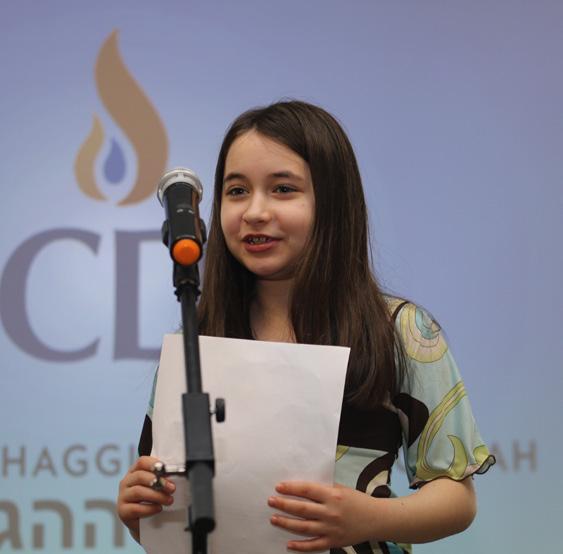


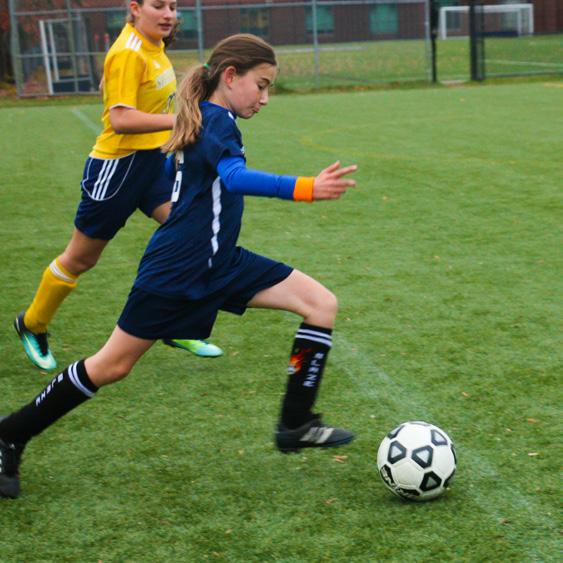
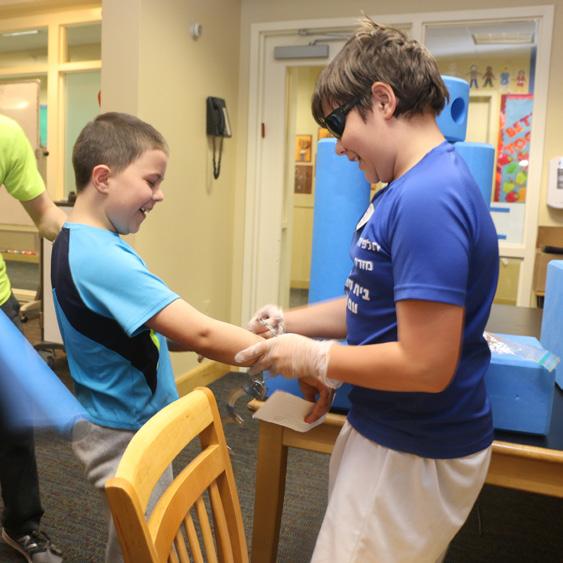



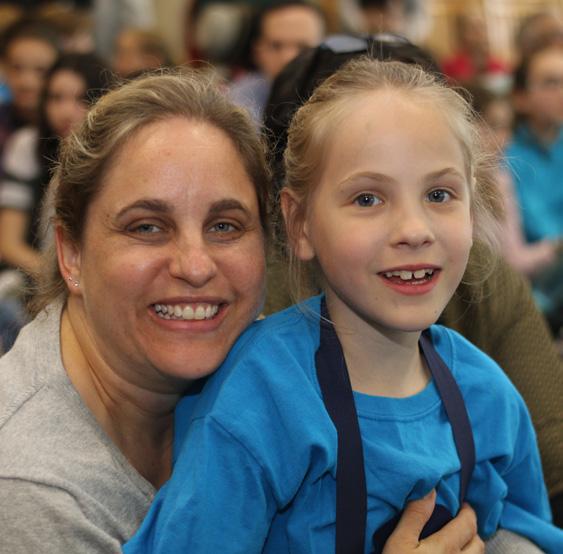
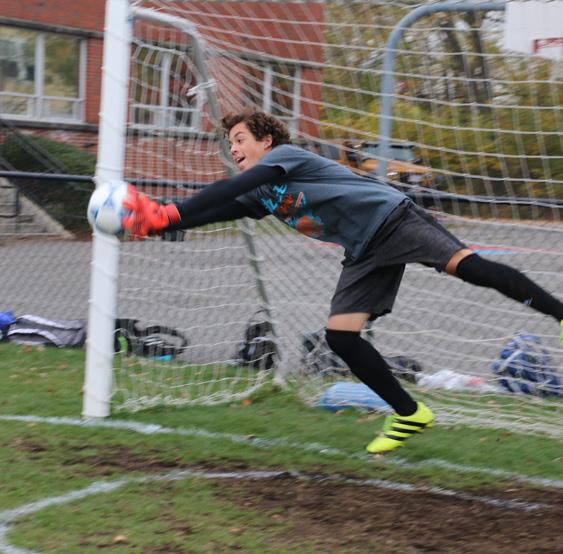
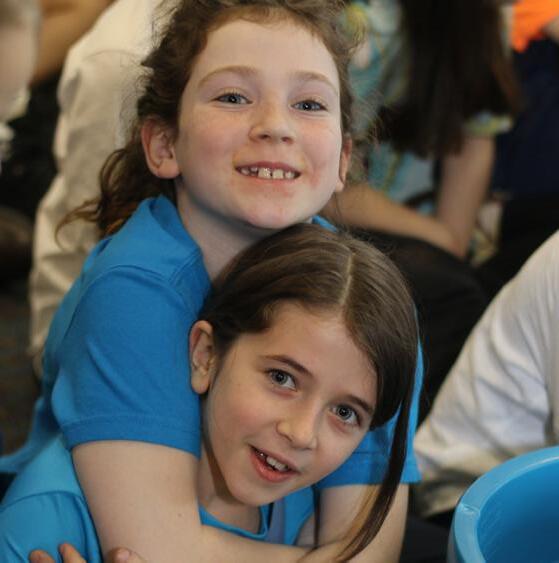
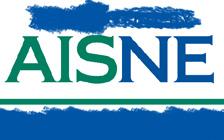



57 STANLEY AVENUE, WATERTOWN, MA 02472 617-972-1733 WWW.JCDSBOSTON.ORG EIN TAX ID # 04-3278141 NONPROFIT ORG U.S. POSTAGE PAID BOSTON MA PERMIT NO. 55058 SPARKS MAGAZINE / FALL 7
NITZOTZOT MAGAZINE CREDITS Editorial Miriam Seidman Communications Manager
Jennifer London Director of Development and Communications
Printing Signal Graphics Design Miriam Seidman
Photography Jamie Rosenblatt
Miriam Seidman




 Dr. Susie Tanchel Head of School
Dr. Susie Tanchel Head of School














 By Jared Matas, Director of STEM Innovation
By Jared Matas, Director of STEM Innovation




 By Naomi Gurt Lind, parent of Akiva ‘18 and Gideon ‘22
By Naomi Gurt Lind, parent of Akiva ‘18 and Gideon ‘22






































 By Chavah Goldman, 2nd Grade General Studies Teacher
By Chavah Goldman, 2nd Grade General Studies Teacher

















